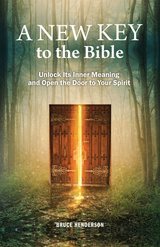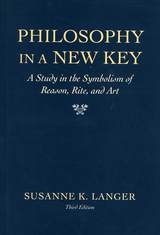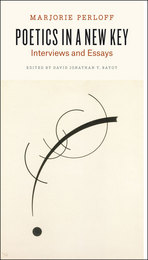
In his vast writings, eighteenth-century spiritual teacher Emanuel Swedenborg offers clarification: beneath the often-confusing literal text of the Bible is a clear inner meaning that directly points to an inclusive, always-loving, always-present God. In A New Key to the Bible: Unlock Its Inner Meaning and Open the Door to Your Spirit, author Bruce Henderson guides the reader through Swedenborg’s interpretation of the Bible, offering up a thought-provoking yet digestible way to understand the Creation story, as well as other famous parables such as Adam and Eve, Noah’s Ark, Abraham and Sarah, Moses, the life of Jesus, and the apocalyptic imagery of Revelation. At each step of the way, Henderson shows how these Scripture stories written thousands of years ago reflect our own spiritual paths and give meaning to the challenges we face along our journey in the present day.
For readers new to Swedenborg, A New Key to the Bible serves as an overview of the thousands of pages Swedenborg wrote about the inner meaning of the Bible. For spiritual seekers who feel a connection to the Bible but are sometimes troubled by its contents, Swedenborg reassures with a transcendent level of understanding about how God wants to inspire us through sacred text.

Modern theories of meaning usually culminate in a critique of science. This book presents a study of human intelligence beginning with a semantic theory and leading into a critique of music.
By implication it sets up a theory of all the arts; the transference of its basic concepts to other arts than music is not developed, but it is sketched, mainly in the chapter on artistic import. Thoughtful readers of the original edition discovered these far-reaching ideas quickly enough as the career of the book shows: it is as applicable to literature, art and music as to the field of philosophy itself.
The topics it deals with are many: language, sacrament, myth, music, abstraction, fact, knowledge--to name only the main ones. But through them all goes the principal theme, symbolic transformation as the essential activity of human minds. This central idea, emphasizing as it does the notion of symbolism, brings Mrs. Langer's book into line with the prevailing interest in semantics. All profound issues of our age seem to center around the basic concepts of symbolism and meaning. The formative, creative, articulating power of symbols is the tonic chord which thinkers of all schools and many diverse fields are unmistakably striking; the surprising, far-reaching implications of this new fundamental conception constitute what Mrs. Langer has called "philosophy in a new key."
Mrs. Langer's book brings the discussion of symbolism into a wider general use than criticism of word meaning. Her volume is vigorous, effective, and well written and will appeal to everyone interested in the contemporary problems of philosophy.

The fourteen interviews in Poetics in a New Key—conducted by scholars, poets, and critics from the United States, Denmark, Norway, France, and Poland, including Charles Bernstein, Hélène Aji, and Peter Nicholls—cover a broad spectrum of topics in the study of poetry: its nature as a literary genre, its current state, and its relationship to art, politics, language, theory, and technology. Also featured in the collection are three pieces by Perloff herself: an academic memoir, an exploration of poetry pedagogy, and an essay on twenty-first-century intellectuals. But across all the interviews and essays, Perloff’s distinctive personality and approach to reading and talking resound, making this new collection an inspiring resource for scholars both of poetry and writing.
READERS
Browse our collection.
PUBLISHERS
See BiblioVault's publisher services.
STUDENT SERVICES
Files for college accessibility offices.
UChicago Accessibility Resources
home | accessibility | search | about | contact us
BiblioVault ® 2001 - 2024
The University of Chicago Press









